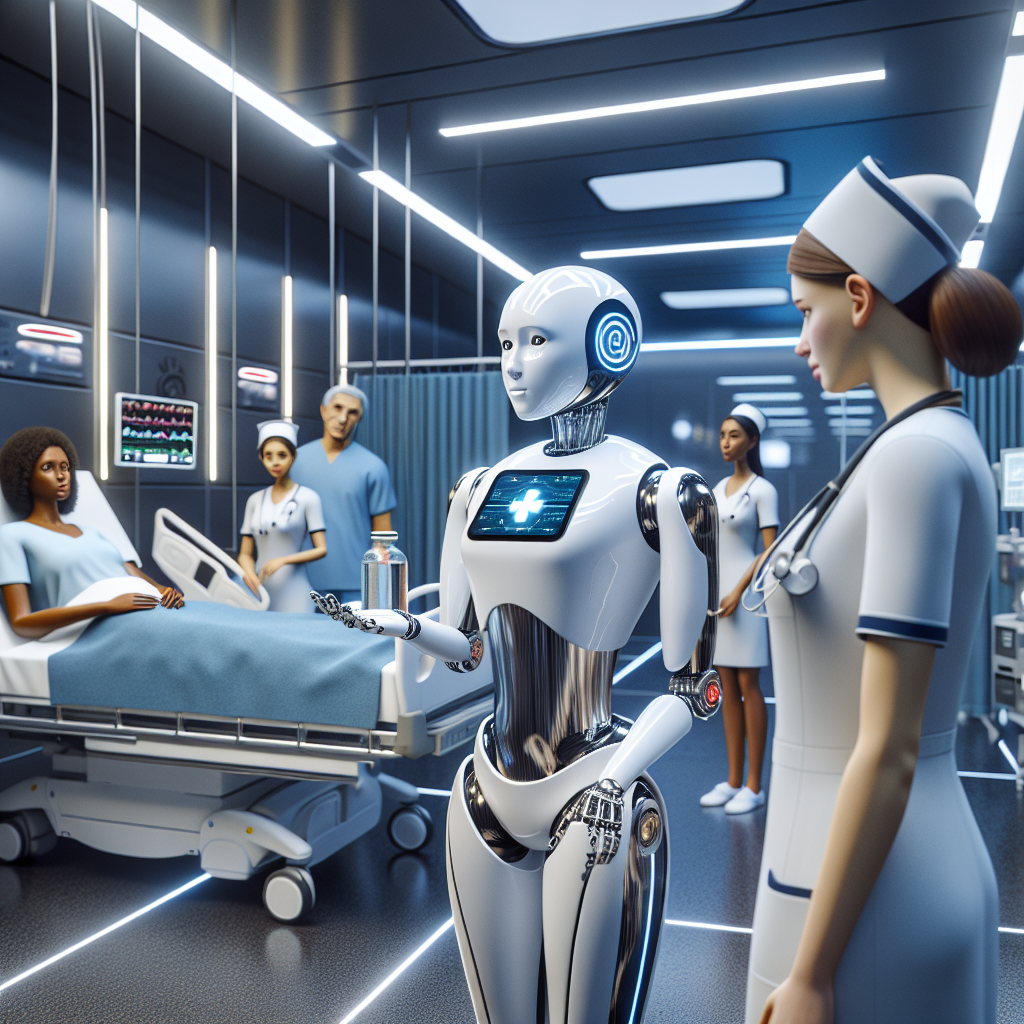As AI Nurses Reshape Hospital Care, Human Nurses Are Pushing Back
The Rise of AI in Healthcare
In the ever-evolving landscape of healthcare, the integration of Artificial Intelligence (AI) has become a pivotal force in reshaping how patient care is delivered. Hospitals across the globe are increasingly employing AI-driven technologies, including robotic nurses and software programs that assist with patient monitoring, data analysis, and administrative tasks. This transition aims to improve efficiency, reduce costs, and enhance patient care — goals that are undeniably appealing to healthcare administrators.
However, as AI systems become more prevalent, they also raise a multitude of concerns, particularly among human nurses. These professionals are at the frontline of patient care, and with the advent of AI technologies, they find themselves grappling with the implications of machines usurping roles traditionally held by humans. The tension between AI integration and the essential human touch in nursing has sparked an important dialogue within the healthcare community.
The Role of AI in Nursing
AI has the potential to revolutionize nursing in several ways:
1. Efficiency in Routine Tasks: Automated systems can handle administrative duties such as scheduling, record-keeping, and patient follow-up reminders. This allows nurses to focus more on direct patient care rather than being bogged down by paperwork.
2. Improved Patient Monitoring: AI-driven devices can continuously monitor patients’ vital signs and alert nursing staff to any irregularities. This real-time data collection can enhance patient safety and enable quicker interventions.
3. Data Analysis for Better Outcomes: Machine learning algorithms can analyze vast amounts of patient data to identify trends and predict potential health crises before they occur. This proactive approach can significantly improve patient outcomes.
4. Support for Decision-Making: AI systems can assist nurses in making clinical decisions by providing evidence-based recommendations. This could lead to better treatment plans tailored to individual patient needs.
While these benefits are significant, the implementation of AI in nursing is not without its challenges.
Concerns from Human Nurses
As AI technologies are integrated into healthcare systems, many nurses express trepidation about their future roles. Here are some of the primary concerns:
1. Job Security: The most pressing concern is the fear of job loss. As AI systems take over repetitive and administrative tasks, human nurses worry that their roles may be diminished or even eliminated. The potential for AI to replace certain functions in nursing raises questions about the future workforce and the demand for human nurses.
2. Loss of Human Touch: Nursing is not just about clinical skills; it also involves empathy, compassion, and communication. Human nurses provide emotional support to patients and their families, which AI cannot replicate. Many nursing professionals believe that patient care should always include a human element — something that robots and algorithms cannot fully offer.
3. Training and Adaptation: Nurses are trained professionals who must continuously adapt to new technologies. The introduction of AI in healthcare requires additional training, which can be burdensome, especially for those who feel overwhelmed by the rapid pace of technological change. Nurses are concerned about being left behind if they do not receive adequate training in these new AI systems.
4. Ethical Implications: The use of AI in healthcare raises ethical questions, such as data privacy and informed consent. Nurses have a vital role in protecting patient information, and the use of AI technologies may complicate these responsibilities. Additionally, the decisions made by AI algorithms must be transparent and accountable to ensure that patient care remains ethical.
Finding a Balance Between AI and Human Care
While AI has the potential to transform nursing, it is crucial to strike a balance between technology and the human aspects of care. Collaboration between AI systems and human nurses can lead to a more efficient and effective healthcare environment. Here are some strategies for finding this balance:
1. Emphasizing Team-Based Care: AI technologies should be viewed as tools that support nursing practice rather than replacements for human nurses. By fostering a team-based approach where nurses and AI work together, healthcare systems can utilize the strengths of both to provide better patient care.
2. Incorporating Training Programs: Healthcare organizations must prioritize training programs that equip nurses with the skills necessary to work alongside AI technologies. This can alleviate fears of job displacement and empower nurses to enhance their practice.
3. Encouraging Open Dialogue: It is essential for healthcare leaders to engage in meaningful conversations with nursing staff about the integration of AI. Listening to nurses’ concerns and insights can foster a culture of collaboration and innovation rather than resistance.
4. Maintaining Patient-Centric Care: AI should augment, not replace, the human touch that is critical in nursing. Several studies have demonstrated that patients who receive empathetic care from their nurses experience better health outcomes. Therefore, maintaining a strong focus on patient-centered care is essential.
Conclusion
The integration of AI into hospital care is a complex issue that requires careful consideration of both the benefits and drawbacks. While AI has the potential to enhance efficiencies and improve patient outcomes, it also poses significant challenges, particularly for human nurses. By addressing concerns related to job security, training, and the ethical implications of AI use, healthcare leaders can create an environment where technology and human touch coexist harmoniously.
As the healthcare sector continues to evolve, it is imperative to recognize the invaluable role of nurses in delivering compassionate care. By fostering collaboration between human nurses and AI technologies, hospitals can pave the way for a future where both can thrive, ultimately benefiting the patients they serve. The future of nursing lies not in competition with AI, but in leveraging its capabilities to enhance the art and science of nursing practice.



